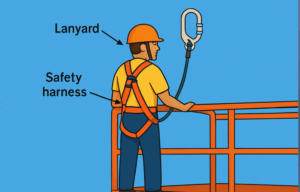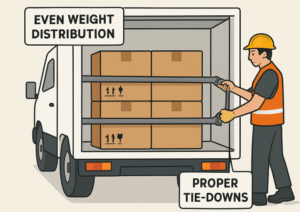Reasons Why You Should Consider a UX Design Degree

A UX design degree is a great way to learn new skills and get a job. However, it’s essential to consider the pros and cons before deciding. Many people who work as UX designers don’t pursue a traditional university degree. They may have started in another related field or accumulated experience in the industry.
It’s a great way to get a job
A UX design degree is a great way to learn the skills you need to get a job in the field. Many programs also offer job search resources like practice interviews and hiring consortiums, which can be a huge help when trying to land a UX design job. Additionally, UX degrees often include hands-on projects and case studies that will help you build a portfolio that is more likely to catch the eye of employers. If you’re a creative person who thrives on variety, UX design may be the perfect field.
This multidisciplinary career combines elements of design, human psychology, and problem-solving. You’ll be tasked with everything from conducting user research to creating website and app wireframes, and you’ll need to be comfortable wearing many hats at once.
However, if you’re not interested in getting a formal UX design degree, there are plenty of other options. You can take self-paced online courses that allow you to work at your own pace or find a UX boot camp to provide a structured learning experience with expert instructors. Additionally, you can gain experience in the field through a UX internship or freelance work. Whatever route you choose, find a program that provides high-quality instruction, flexible learning materials, and individualized mentorship.
It’s a great way to learn new skills
There is plenty of resources for learning UX design, including books, blogs, podcasts, and video courses. But a degree program is a good option if you’re looking for structured and guided learning. With a degree, you’ll be able to gain essential industry skills while also earning a credential to put on your resume. When choosing a UX design program, look for an up-to-date curriculum with the industry, learning materials that match your unique learning style, and individualized mentorship. It would be best to consider whether the program will provide real-world, practical experience and hands-on training with essential UX tools and software.
A good UX design program will help you develop your skills in user research, information architecture, wireframing, and prototyping. It’ll allow you to collaborate with other designers, learn from experienced mentors, and build a portfolio of your work. You’ll also be able to network with fellow students, which can be helpful when finding a job. Plus, you’ll be able to find out about new job openings that might be a fit for your skill set. And, of course, if you’re interested in freelancing, you can always use your UX skills to earn some extra income.
It’s a great way to build a portfolio
A UX degree is one of the best ways to quickly assure potential employers that you know design theory and practice well. However, it’s also possible to learn the necessary skills from other sources: books, blogs, podcasts, and YouTube videos are plenty. What matters most when creating a UX portfolio is the quality of work and how you’ve articulated your process. A great way to build a UX portfolio is to find a course with mentorship and specific, informal feedback from a seasoned design professional.
Many boot camps offer these benefits, whereas some degree programs may not. Another way to build a UX portfolio is by working on projects that require a non-disclosure agreement (NDA). This allows you to include work in your portfolio that would be impossible in a job interview but still makes a great example of your skills and abilities. UX is a very dynamic field and requires a lot of different skills. This career might be perfect for you if you’re the type who thrives on variety.
The to-do list constantly changes from conducting user interviews to creating a website or app wireframes. If you’re looking for a program that will help you hone these various skills, check out our UX/UI Design Certificate Program. It’s flexible enough to fit into your schedule but rigorous enough to ensure you’re prepared for the job market.
It’s a great way to network
Whether you choose the degree route or a more flexible alternative like a UX boot camp or online certificate, networking is essential to getting your first job and building your professional image. Having your network of fellow designers can make it much easier to land your first gig, and it will also help you stay in the know about what’s new in the field and what challenges are currently being faced by the industry. You can start networking like you would in any other professional area.
You can also network through volunteer and freelance opportunities, which will give you valuable work experience and help you get a foot in the door of the design community. Aside from networking, you should also find a program that provides many hands-on learning opportunities. Find a course that will allow you to build your portfolio with real-world projects and provide you with opportunities to apply the theory you’ve learned in practice. This will be especially helpful if you’re not yet confident in your UX skills, as it will let you test your abilities and learn from your mistakes.







